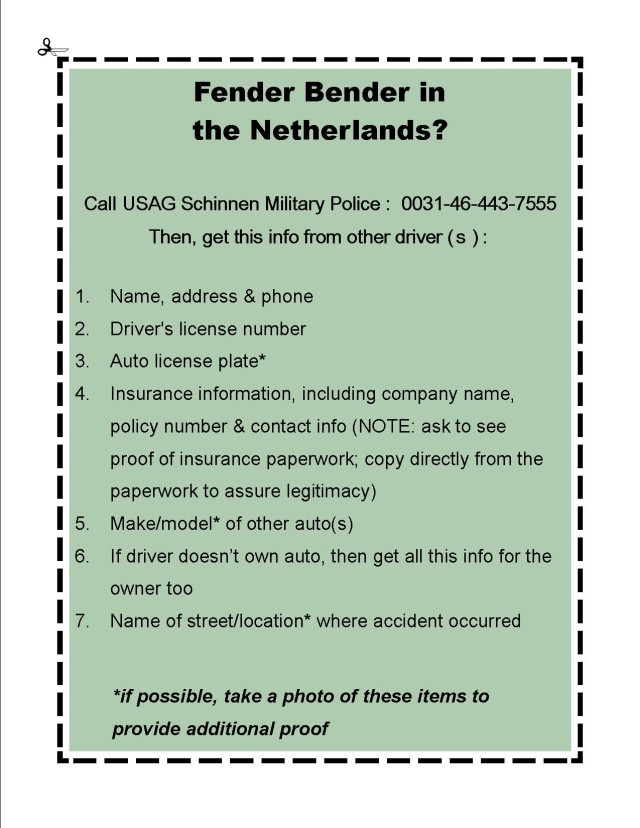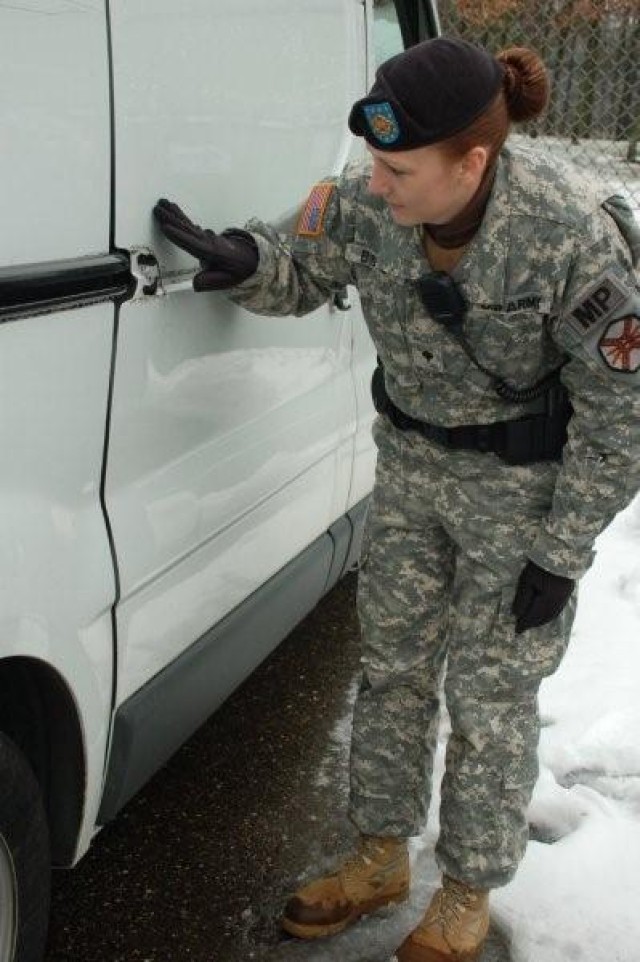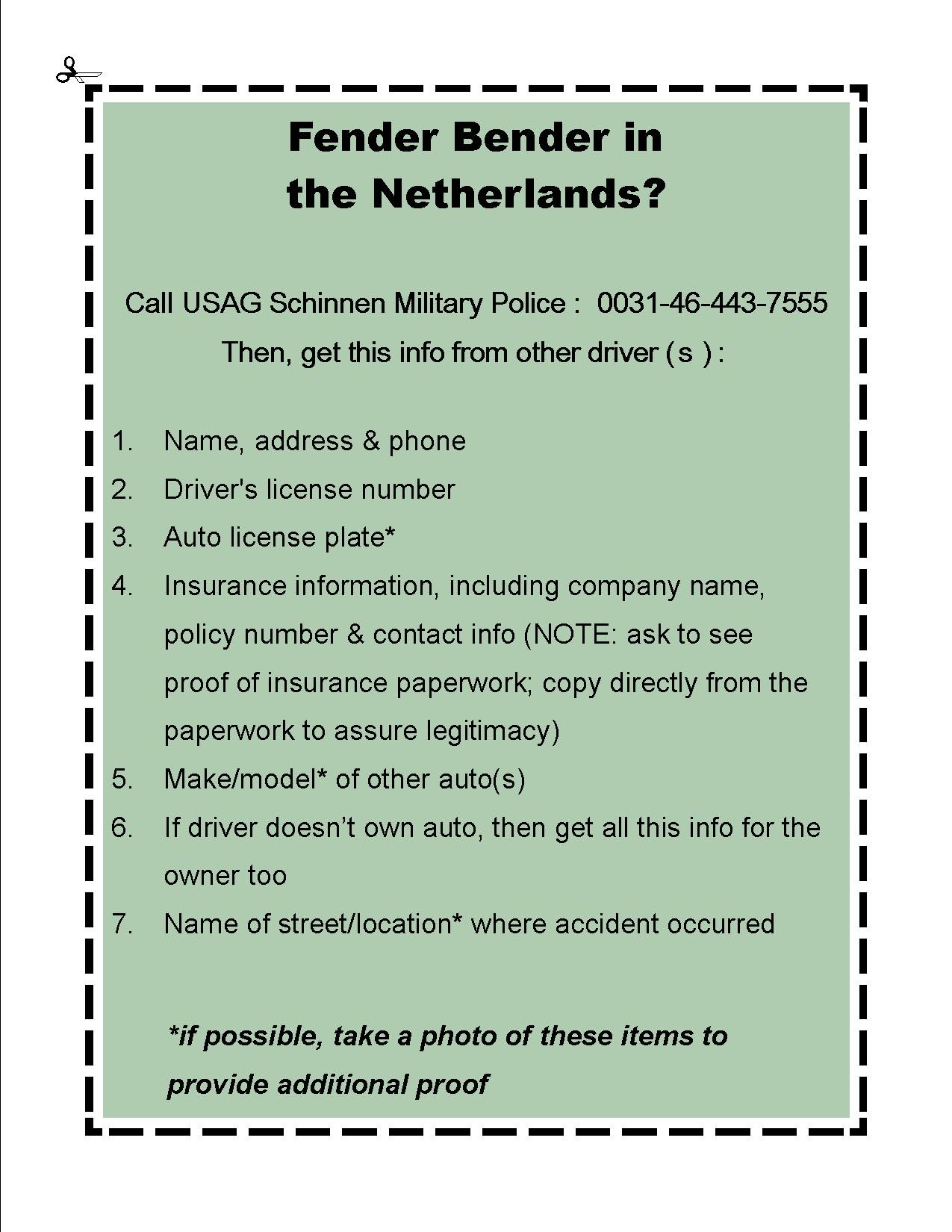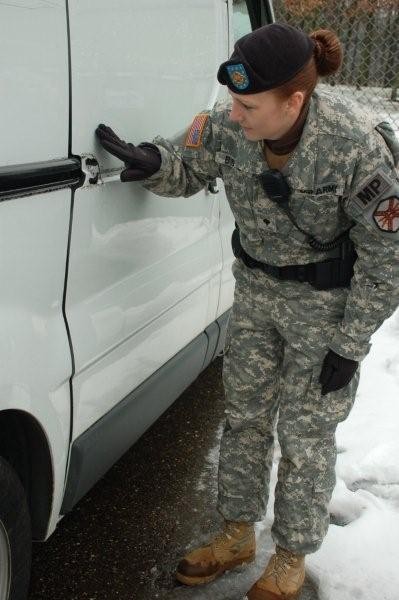SCHINNEN, Netherlands - If you have a fender bender in the Netherlands, don't expect the local police to respond. Starting Jan. 1, Dutch law enforcement are to begin observing a long-standing policy of "citizen autonomy" in responding to minor traffic accidents, meaning citizens are expected to handle the accident without police involvement, unless the parties in the accident disagree or if there is more than minor damage.
Jos Schuurman, a spokesperson for the Raad van Hoofdcommissarissen (i.e. Dutch commissioners of police), explained that the policy has not been uniformly applied throughout the Netherlands in the past, but the new enforcement is intended to "eliminate arbitrariness."
It is also intended to conserve limited manpower, according to Lou Ruijters, a sergeant first class with the Brunssum branch of the Dutch military police known as the Koninklijke Marechaussee or KMAR.
USAG Schinnen Military Police will respond to traffic accidents involving U.S. personnel in the Netherlands, said John Hopper, Schinnen's Provost Marshall. Hopper said he received assurance from Dutch officials that KMAR will respond to accidents involving U.S. or NATO personnel. As the only U.S. military installation in the Netherlands, Schinnen's Provost Marshall maintains a direct link with KMAR.
"U.S. personnel definitely need to call the Schinnen MPs if they have an accident anywhere in the Netherlands. That way we can get to the scene of the accident and make sure their best interests are protected," Hopper said. "We will also make sure KMAR gets there. But if we don't know about it-for instance if you call 112-then it goes to the local police, and no one is likely to respond if it's only minor."
Dutch and U.S. authorities say all motorists should collect appropriate information from individuals involved in the incident and be prepared to visually document any damage sustained in a traffic accident.
"Cell phone pictures work great. Box cameras work well too. That way, if the other person drives away before the Schinnen MPs or the KMAR arrive, you still have a record of what happened," Hopper said.
A visual record is helpful when filing your insurance claim, and it could also protect you against possible legal claims.
"You could be sued after the accident, but if you have photos showing the extent of damage to both autos, then it will be hard for somebody to claim you caused more damage than actually occurred," Hopper said.
If the accident is more severe than a fender bender or if there is disagreement between the individuals involved in the accident, local police will respond when called, explained the KMAR's Ruijters.
"The response policy only applies to fender benders," Ruijters said. "We're talking about minor damage, like a couple of scratches, and also when both parties agree on who was at fault. If it's anything more than minor damage, or if the parties cannot agree, even in a minor accident, then the police will respond when called," he said.
Related Links:
De Limburger Dagblad, reported Dec. 10, 2009




Social Sharing